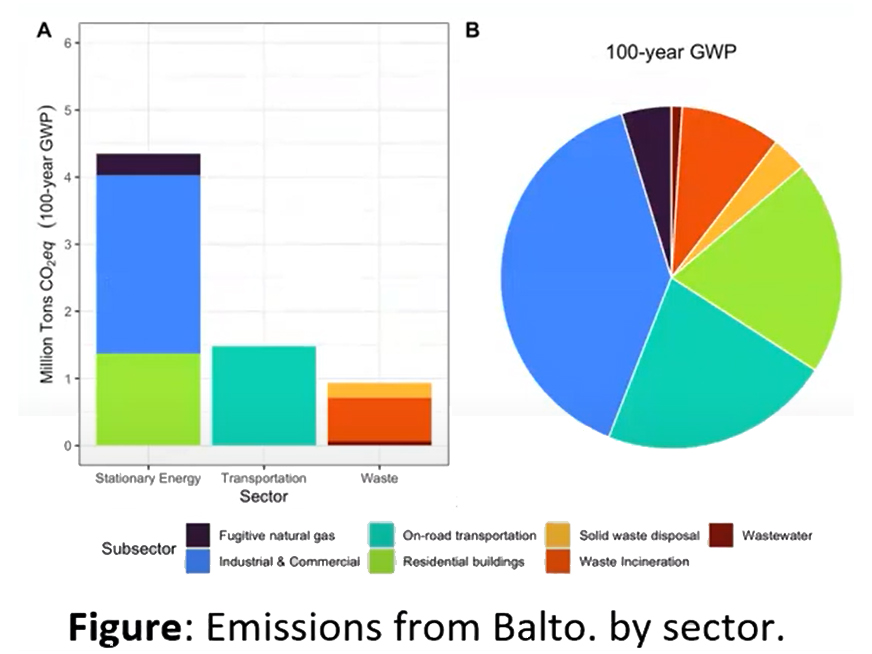Why study biogeochemistry?
Emissions of carbon dioxide, methane, and nitrous oxide have led to climate change, and emissions are still increasing worldwide. While Baltimore has committed to reducing emissions 30% by 2025, 60% by 2030, and 100% by 2045, scientists don’t have all the information needed to identify effective ways to do that. For example, how do emissions vary across Baltimore? How will emissions change in a warmer climate? And how much carbon do plants and other green spaces in the city absorb?
How do the issues you study show up in Baltimore?
Baltimore City has reliable estimates of CO2 emissions from cars and traffic in Baltimore, but other greenhouse gas sources are much more difficult to pin down. For example, Baltimore has old, relatively leaky natural gas pipes. Before BSEC’s partners at Baltimore Gas and Electric can repair them, scientists need to better understand where and how large these leaks are. Other examples of emissions whose sources are elusive are methane from wastewater treatment and from landfills.

Guiding Questions for Research
- What are Baltimore’s greenhouse gas emissions, and how can we effectively track Baltimore’s greenhouse gas emissions in the future?
- To what extent do plants across Baltimore absorb carbon dioxide? How will this change in the future as the climate changes?
- How will emissions change in a warmer climate, for example as people use more air conditioning and less heat?
Sample Project
Researchers are equipping a van with air quality and greenhouse gas sensors to create a mobile air monitoring laboratory. This mobile laboratory will allow scientists to investigate greenhouse gas or air quality concerns voiced by residents and monitor air events as they occur (like the fire at the CSX coal pile in 2021). Scientists will also monitor the impacts on air quality of large emissions sources across the city like the Quarantine Road Landfill and the Port of Baltimore.
Team Co-Leads
- Scot Miller, Johns Hopkins University
- Jon Duncan, Pennsylvania State University

